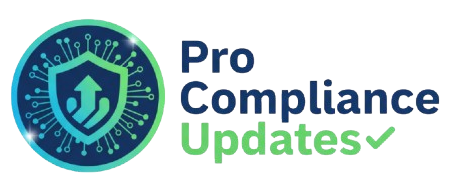This 60 minute webinar will discuss the Family Medical Leave Act (FMLA) and distinguish the important differences between it and the California Family Rights Act (CFRA) and Pregnancy Disability Leave. It is vital that employers who conduct business in California or have employees in California be aware of the important differences, which can result in heavy fines for non compliance for the employer.
WHY SHOULD YOU ATTEND?
Though the laws are similar, there are important differences. It is important that employer understand the laws relating to “Managing Medical Leave in California.: California is known as having various employment laws related to medical leaves of absence that are often more generous than federal employment laws. Compliance is very important for companies with employees in California because of the liabilities for noncompliance can be costly from legal, employee relation and employer brand.
The important differences will be discussed in this session. Tips for compliance and identification of potential non- compliance areas will be discussed. It is vital that supervisors and managers are also trained.
AREA COVERED
- Compliance with California Family Rights Act (CFRA)
- Compliance with Family Medical Leave Act (FMLA) and Pregnancy Disability Leave (PDL) )
- Comparison of the California state laws and FMLA)
- Understanding the intersection of this federal law and the two state laws)
- HR’s role in managing FMLA and California state laws
LEARNING OBJECTIVES
- Discuss the Family Medical Leave Act
- Provide a general overview of carious California state laws such as California Family Rights Act (CFRA), California Fair Employment and Housing Act (CA-FEHA) and Pregnancy Disability Leave (PDL)
- Provide a comparison between the FMLA and the California state laws
- Discuss HR’s Role in managing leaves of absence in California.
WHO WILL BENEFIT?
- HR professionals
- Training and development managers.
- HR professionals.
- Line managers.
- Leave managers.
- HR generalists.
- HR business partners.
- Supervisors.
- Manager and supervisors of employees in California.
Though the laws are similar, there are important differences. It is important that employer understand the laws relating to “Managing Medical Leave in California.: California is known as having various employment laws related to medical leaves of absence that are often more generous than federal employment laws. Compliance is very important for companies with employees in California because of the liabilities for noncompliance can be costly from legal, employee relation and employer brand.
The important differences will be discussed in this session. Tips for compliance and identification of potential non- compliance areas will be discussed. It is vital that supervisors and managers are also trained.
- Compliance with California Family Rights Act (CFRA)
- Compliance with Family Medical Leave Act (FMLA) and Pregnancy Disability Leave (PDL) )
- Comparison of the California state laws and FMLA)
- Understanding the intersection of this federal law and the two state laws)
- HR’s role in managing FMLA and California state laws
- Discuss the Family Medical Leave Act
- Provide a general overview of carious California state laws such as California Family Rights Act (CFRA), California Fair Employment and Housing Act (CA-FEHA) and Pregnancy Disability Leave (PDL)
- Provide a comparison between the FMLA and the California state laws
- Discuss HR’s Role in managing leaves of absence in California.
- HR professionals
- Training and development managers.
- HR professionals.
- Line managers.
- Leave managers.
- HR generalists.
- HR business partners.
- Supervisors.
- Manager and supervisors of employees in California.
Speaker Profile
 Deborah Covin Wilson
Deborah Covin Wilson
Deborah Covin Wilson, CPLP SHRM-SCP, SPHR, is the keynote speaker at ComplianceKey. She is the recently retired director of organizational development and consulting services, a unit in human resources administration at Georgia State University. With more than 25 years in higher education, she was responsible for training, employee engagement programs, strategic planning, HR communications, and organization development services. Deborah was involved in several University System of Georgia Board of Regents initiatives: She served as chair of the Tuition Assistance Program committee, a member of the Executive Leadership Institute Advisory Committee, and a steering committee member of the Accelerated Leadership Academy.Deborah …
Upcoming Webinars

Leadership: Strategic Planning and Decision Making

Writing Techniques for Auditors and Risk Management Profess…

Language is Code - Intro to AI - Generative AI - ChatGPT an…

Gossip-Free: Leadership Techniques to Quell Office Chatter

Do's and Don'ts of Giving Effective Feedback for Performanc…

Women’s Hostility to Women at Work: Myth or Reality

4-Hour Virtual Seminar on Audit Proofing your Payroll Opera…

Do's and Don'ts of Documenting Employee Behaviour, Performa…


Retention Starts Here: Stop Losing Your Critical Talent and…


Practice Safe Stress ™: Preventing Burnout While Building R…

Impact Assessments For Supplier Change Notices

Cleanroom, Microbiology and Sterility Assurance Practices f…




Thriving in a Hybrid Workplace: Keys to Leadership and Team…

2-Hour Virtual Seminar on DeepSeek vs ChatGPT AI for CPAs a…

Understanding EBITDA – Definition, Formula & Calculation

FDA Regulation of Artificial Intelligence/ Machine Learning

Construction Lending And Real Credit Administration: Evalua…

Sunshine Act Reporting - Clarification for Clinical Research

How the OBBB Act will Impact Immigration Enforcement! Preve…


2-Hour Virtual Seminar on Outlook - Timesaving Tips and Tri…


Leadership Upskilling: Don’t Just Manage; Lead with Influen…

H-1B Visa Updates and Employer Strategies for 2026

Aligning Your HR Strategy with Your Business Strategy: A Ro…

HIPAA 2025 – Major Changes, Latest Rulings & Guidance

AI for Excel Professionals: Enhancing Productivity with Cha…

Dealing With Difficult People: At Work & In Life

Understanding Accounting for non - Accounting professionals



Excel Power Skills: Master Functions, Formulas, and Macros …
